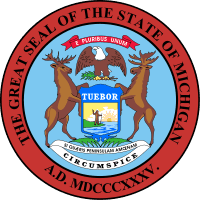 Michigan prides itself on taking a strong stand against impaired drivers. Because of its high percentage of alcohol-related traffic fatalities involving drunk drivers with a blood alcohol content (BAC) of 0.15 or higher, Michigan is even tougher on drunk drivers with a BAC of 0.17 or higher. On top of a high BAC problem, the state also has a high repeat offense rate. In 2011 alone, 90 percent of fatal drunk driving crashes involved a repeat offender with a BAC of at least 0.15. Mothers Against Drunk Driving has been working for years to reduce repeat offenses in Michigan by encouraging the state to get a stronger ignition interlock law. However, Michigan has yet to expand their interlock law to include all drunk drivers, or even all repeat offenders, despite the device’s proven ability to reduce drunk driving and repeat offenses.
Michigan prides itself on taking a strong stand against impaired drivers. Because of its high percentage of alcohol-related traffic fatalities involving drunk drivers with a blood alcohol content (BAC) of 0.15 or higher, Michigan is even tougher on drunk drivers with a BAC of 0.17 or higher. On top of a high BAC problem, the state also has a high repeat offense rate. In 2011 alone, 90 percent of fatal drunk driving crashes involved a repeat offender with a BAC of at least 0.15. Mothers Against Drunk Driving has been working for years to reduce repeat offenses in Michigan by encouraging the state to get a stronger ignition interlock law. However, Michigan has yet to expand their interlock law to include all drunk drivers, or even all repeat offenders, despite the device’s proven ability to reduce drunk driving and repeat offenses.
OWI Laws
Anyone who operates a vehicle with a BAC of 0.08 or higher in Michigan is charged with operating a vehicle while intoxicated (OWI). The legal limit for drivers under the age of 21 is 0.02. The consequences for drunk driving in Michigan include a fine, jail time, driver’s license suspension, and participation in a rehabilitation program:
- 1st Offense: $100-$500 fine; up to 93 days in jail; 30-day license suspension followed by a 150-day license restriction
- 2nd Offense: $200-$1,000 fine; 5 days to 1 year in jail; 1-year minimum license revocation
- 3rd Offense (felony): $500-$5,000 fine; 1-5 years in jail; 1-year minimum license revocation
Michigan also has a High-BAC law that escalates the consequences for OWI if the offender’s BAC was 0.17 or higher. For example, the fine, jail time, and license suspension period for a first-time offender with a BAC of 0.17 would increase to a maximum of $700, 180 days, and 1 year, respectively.
OWI offenses involving the death or serious injury of another person are escalated to felonies punishable by a fine of $2,500 to $10,000 and/or up to 15 years in prison for a death and a fine of $1,000 to $5,000 and/or up to 5 years in prison for an injury.
Consequences also increase if the convicted drunk driver committed the offense with a passenger under the age of 16 inside the vehicle. Other possible consequences for OWI offenses include community service, vehicle immobilization or forfeiture, and license plate confiscation. Under Michigan’s Driver Responsibility Act, all convicted drunk drivers must also pay $1,000 for two consecutive years for a total of $2,000.
Ignition Interlock Laws
First-time offenders with a BAC of 0.17 or higher and habitual OWI offenders with two or more convictions within 7 years or three or more convictions within 10 years are required to install an ignition interlock in their vehicles in order to obtain a restricted driver’s license.
